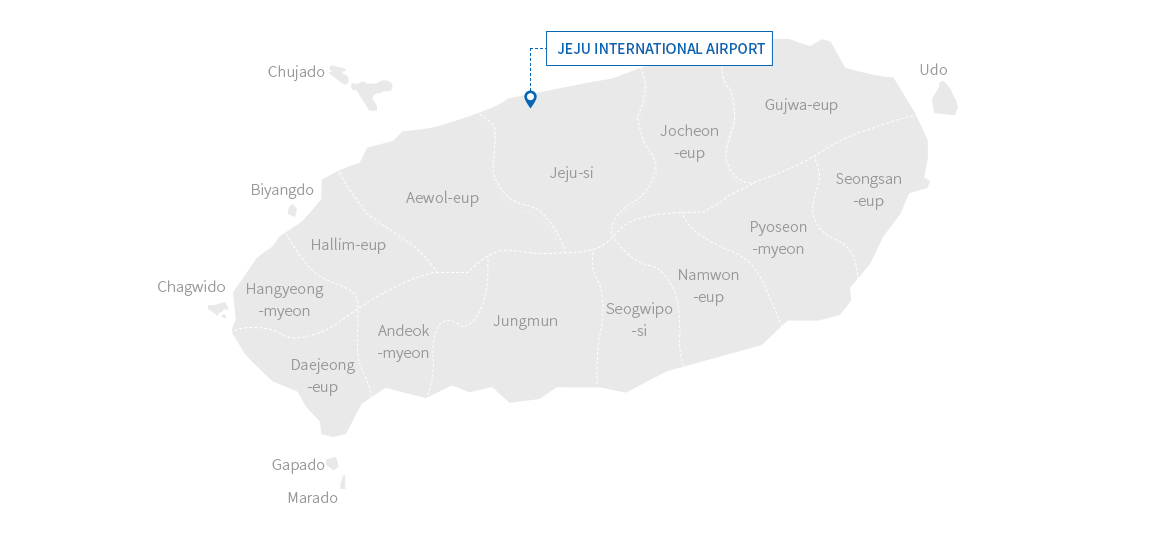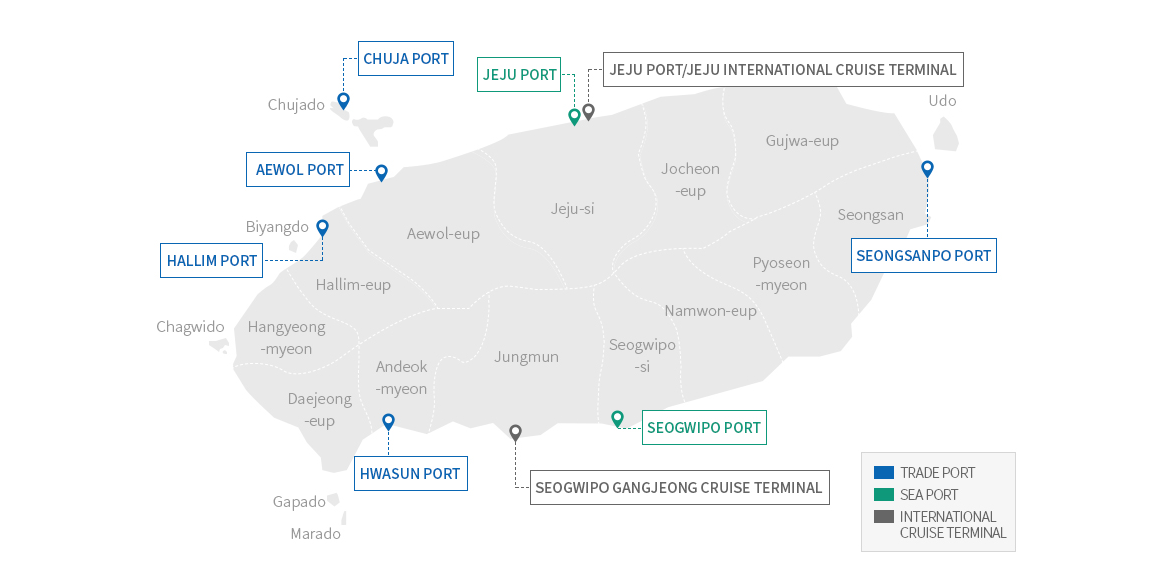e-jejutrade, The Best Partner for your Corporation's Success
제주전자무역지원시스템(E-Jejutrade_en)
Jeju International Airport is Korea’s second busiest airport behind Incheon International Airport, with a capacity of about 30 million passengers every year, providing direct routes to 54 cities in 14 countries.
Located in Jeju City, the airport is home to Jeju Air, Korea’s leading LCC. According to British aviation research and consulting firm OAG, Jeju International Airport is one of the world’s busiest airports.

The busiest by some margin is Jeju (CJU) – Seoul (GMP) with 17 million annual seats, equivalent to around 48,000 on average each day.
Jeju is a popular holiday destination for Koreans and although the flight from Seoul is relatively short, at 243nm (451km), as an island there are fewer other transport options for reaching it.
‘Busiest Routes 2020’ OAG(UK)
Jeju Island has seven ports with berth facilities for freighters importing and exporting a variety of goods such as agricultural and fishery products, domestic ferries, and international cruise ships, as well as seven marina facilities.
Two trade ports in Jeju City and Seogwipo City, four sea ports around the entire island, and one sea port at Chuja Island (islet of Jeju) are in operation.
